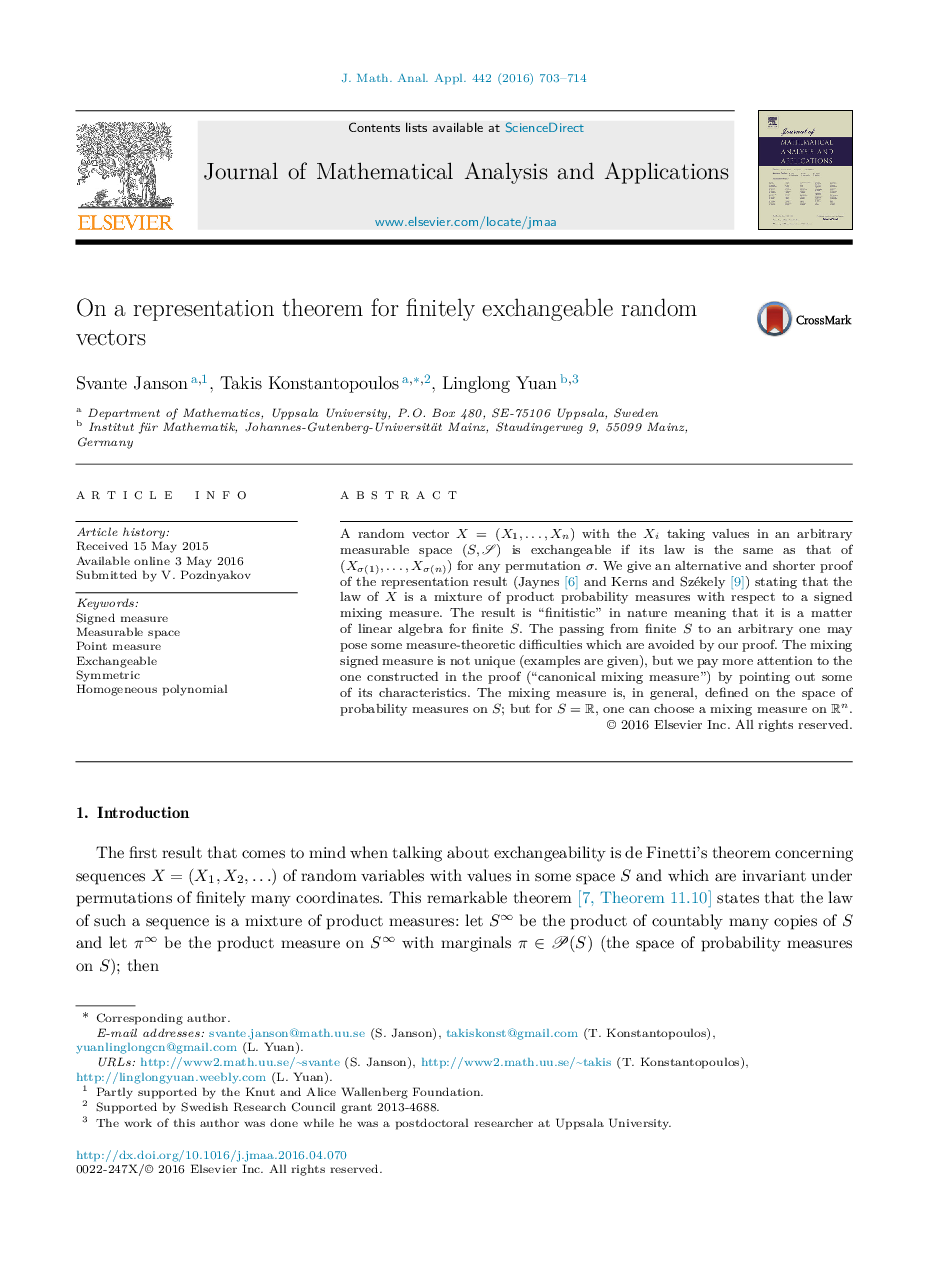| Article ID | Journal | Published Year | Pages | File Type |
|---|---|---|---|---|
| 4614026 | Journal of Mathematical Analysis and Applications | 2016 | 12 Pages |
A random vector X=(X1,…,Xn)X=(X1,…,Xn) with the XiXi taking values in an arbitrary measurable space (S,S)(S,S) is exchangeable if its law is the same as that of (Xσ(1),…,Xσ(n))(Xσ(1),…,Xσ(n)) for any permutation σ. We give an alternative and shorter proof of the representation result (Jaynes [6] and Kerns and Székely [9]) stating that the law of X is a mixture of product probability measures with respect to a signed mixing measure. The result is “finitistic” in nature meaning that it is a matter of linear algebra for finite S. The passing from finite S to an arbitrary one may pose some measure-theoretic difficulties which are avoided by our proof. The mixing signed measure is not unique (examples are given), but we pay more attention to the one constructed in the proof (“canonical mixing measure”) by pointing out some of its characteristics. The mixing measure is, in general, defined on the space of probability measures on S ; but for S=RS=R, one can choose a mixing measure on RnRn.
